Who’s Thrilling You Now? The New Guns of the Thriller Genre; an Author Panel
/by Jonathan Maberry
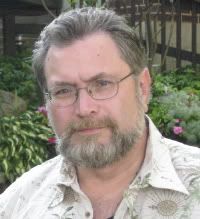 A couple of years ago a bunch of hot new thriller writers broke onto the scene with novels that won awards, made best-seller lists, and established these authors as serious players. Fast-forward to today. How is the reality being a published author different from the promise? I spoke with a few of these New Guns about their life in the writing game.
A couple of years ago a bunch of hot new thriller writers broke onto the scene with novels that won awards, made best-seller lists, and established these authors as serious players. Fast-forward to today. How is the reality being a published author different from the promise? I spoke with a few of these New Guns about their life in the writing game.
JONATHAN MABERRY: You’ve passed the ‘First Novel’ milestone now and have written other novels. What’s changed between the night before that first book release and now?
J.T. ELLISON: Nerves. Without a doubt. I was so scared before my debut – excited, but scared. I knew things were going to change drastically as soon as the book hit the shelves. I was desperately afraid of speaking in public, so I ended up worrying more about that than the performance of the book. Now, I worry about the logical things I can’t control – placement, reviews, if readers will enjoy it, will that TV spot I did get bumped for bigger news, did I sound stupid on the radio – instead of the illogical fears.
BRETT BATTLES: There’s nothing like your first release. You’re on a high for several months prior to your pub date, eagerly 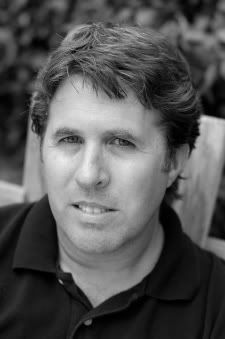 awaiting the day you can walk into a bookstore and see your novel on the shelves. As the day approaches, you check your ranking on Amazon, at first once a day, then twice, then when there is less than a week left, you’re probably checking multiple times each 24 hour period. You hang on every email you get about your book, wondering what new news there is. And when the day comes, you realize that you are something you’ve never been before. A published novelist. When your second comes out, you’re still excited, but the territory you’re crossing is no longer unknown. You start comparing what happened with your first release to what’s happening with your second. You start to worry about whether your sales will go up or go down. The unbridled excitement you experienced with your debut is tempered now by your growing knowledge of the publishing world, and a more discerning eye toward business. This only increases with each release. Don’t get me wrong. You don’t become jaded (though some do), and you are still excited and overwhelmed by the fact that your work is out there for the world to see. It’s just with experience comes knowledge, and you use that knowledge to start looking long term.
awaiting the day you can walk into a bookstore and see your novel on the shelves. As the day approaches, you check your ranking on Amazon, at first once a day, then twice, then when there is less than a week left, you’re probably checking multiple times each 24 hour period. You hang on every email you get about your book, wondering what new news there is. And when the day comes, you realize that you are something you’ve never been before. A published novelist. When your second comes out, you’re still excited, but the territory you’re crossing is no longer unknown. You start comparing what happened with your first release to what’s happening with your second. You start to worry about whether your sales will go up or go down. The unbridled excitement you experienced with your debut is tempered now by your growing knowledge of the publishing world, and a more discerning eye toward business. This only increases with each release. Don’t get me wrong. You don’t become jaded (though some do), and you are still excited and overwhelmed by the fact that your work is out there for the world to see. It’s just with experience comes knowledge, and you use that knowledge to start looking long term.
JASON PINTER: Once the euphoria of having your first book published wears off, you realize just how much work goes into not only continuing to publish, but trying to maintain a career doing it. I still get those same shivers at every milestone with every book (when I see the first cover concept, when I get galleys, when I hold the finished book in my hands for the very first time), but now you always have to be looking ahead to the next book, the next idea, and how to get more readers to dig your work.
ROBERT GREGORY BROWNE: There was a certain giddiness I felt the first time out that has all but disappeared. I look forward to a release now, sure, but with a slight emotional detachment that wasn’t there with that first novel. Back then I was a novice, a newbie, so everything was shiny and bright and exciting. Now that I’ve settled into this new rhythm of write-edit-release, I find myself getting much more excited about the next book than the books currently in the stores.
KEN ISAACSON: I guess the biggest change is that there’s now a standard against which my work will be measured. I wrote SILENT COUNSEL, my first, in a vacuum. I could have finished it, done nothing with it, and no one would have been the wiser. I know how lucky I was to have had it published, and now it’s only natural that my next book will be compared to that yardstick. Had SC completely flopped, that would have absolutely stung, but there would be nowhere to go but up (unless just slinking away in shame was an option). But I was extremely fortunate in that the book has met with a respectable amount of success, so I definitely feel the pressure to produce. That’s a big change for me—having to impress someone besides my mother.
MABERRY: Ever writer I know hits a moment when they realize that the writing game isn’t at all how they imagined it. Talk about your moments of realizations.
ELLISON: It was in 2008, right as my second novel was released. I was writing the fourth book in the series, editing the third book, and promoting the second, all at the same time. I had a week that was the perfect storm. I was on travel, on deadline, edits being mailed to me while I was out on tour, putting aside the work in progress to tackle revisions in the hotel before I went to speak. No one prepares you for the level of intensity that confluence of events brings. When you’ve lived and breathed a debut for however many years before you get published, and suddenly you’re under contract for several books and you have to put the pedal to the metal, it can be a shock. But who would change it? Not me. I thrive on pressure, so this is nirvana.
BATTLES: Not sure I’ve ever had that moment. So far it’s everything I imagined and more. Of course, I didn’t put a lot of expectations into it at first. I just thought what would happen would happen. If anything is a little different, I think it’s the way publishing has been forced to change (and continues to change) in recent year. Sometimes I would be nice to have been a writer back in the days when all a writer had to worry about was writing his or her next book. But that’s not our reality, so that’s fine with me. I have no problem rolling with it.
PINTER: This is a little different for me because I worked in publishing for over five years before I left to write full time. I’ve worked with a lot of authors, and have seen many, many different roads to publication. For me, it’s realizing just how much authors have to do beyond the writing of the books. Between corresponding with readers, traveling for conferences and signings, maintaining all sorts of social networking sites and contributing to two blogs, it’s quite time-consuming. Every writer I know hits a moment when they realize that the writing game isn’t at all how they imagined it. Talk about your moments of realizations.
BROWNE: I think that most new writers have dreams of hitting The List, even though we know the odds against it are strong. But then reality sets in and we realize that it takes a number of factors, and sometimes a number of books, to get there. And because that first book was written over a long period of time and we had all the time in the world to get it right, we can sometimes be blindsided by the stark reality that this is a job and you have deadlines and you can no longer write at a leisurely pace. So you have to learn to get it right, right now. Suddenly The List is no longer all that important. You just need to write a great book in a very short period of time and not let anything else distract you.
ISAACSON: Book of Revelations, Ch. 1, v. 1: The book does not write itself. This stuff is work. As much fun as it is (at times), unless you actually go to the computer and bang on that keyboard, it’s going to be a long, long time before that book is done. Book of Revelations, Ch. 1, v. 2: The book does not sell itself; neither shall anyone else but you. Write the book, turn it over to the agent or publisher, and move on to the next project. Oh, that’s not what happens? There is a lot more—here’s that word again—work to do. Promotion, promotion, promotion.
I find myself thinking of it in terms that Stephen Covey talks about in his book “The Seven Habits of Highly Effective People,” where he describes the importance of finding the proper balance between production and production capability (the “P/PC balance”)—doing something (production) vs. working on your ability to do something (production capability). Covey gives the example of running a car—you need to find the right balance between driving and proper maintenance. Spend too much time driving and not enough time maintaining, and the car will fail. Spend too much time with it in the shop, and the car won’t be available to drive.
In the writing game, I think it’s the same. The struggle is to find the right balance between writing and promoting. Spend too much time writing, and not enough promoting, you’ll produce great books, but no one will know about them (and no one will read them). Spend too much time promoting and not enough writing, everyone will know about you, but there won’t be anything for them to read. Find the right P/PC balance!
MABERRY: Celebrity comes in all wattages. What was your first celebrity moment? What is celebrity like months or years in?
ELLISON: I don’t think of it as celebrity, more like notoriety. It’s hard to avoid when you write in a small but exceptionally literate town like I do. I’ve been blessed with excellent publicists, who have gotten me on air and in print, and as a result people do recognize me. But it’s always at the most inopportune moments – at the salon after a grooming session, or rushing into Publix for something to make for dinner. I am a rather informal person, and it never fails that someone recognizes me when I have no makeup, gym shorts and a ponytail going on. But hey, that’s life.
BATTLES: Author celebrity is not like movie star celebrity, or political star celebrity, or sports star celebrity. First, with the exception of a few top level authors, most people don’t know our names. And even with the top level authors, most people don’t know what an author looks like. With the exception of Stephen King and perhaps one or two others, most authors can walk down the street without being recognized. So, for most of us, celebrity is only a sometimes thing, and those sometime things are a very small percentage of our years. They come at fan conferences or at book signings and festivals. To a certain extent it’s fun, but on a deeper level when a fan approaches you and is obviously very nervous to talk to you, it’s kind of surprising. I mean, I’m still me. I’m still the guy who spent many a party a little shy to talk to the cute girl across the room. I go shopping, I wash my own clothes, I cook my own meals. But to be nervous to talk to me? And then I remember just a few years ago when I went to my first Thrillerfest, and there was the great Lee Child. I was SO nervous to talk to him, I’m not even sure I ever introduced myself then. Which just goes to show me that Lee was probably thinking the same things I’m thinking now when that happens with my fans. One of the best moments, though, I will say was at a conference signing when this guy walked up with my book to get signed, stuck out his hand to shake, and said, “Mr. Battles, you are one bad ass writer.” That was priceless.
PINTER: Celebrity is a very relative word. Not many authors get ‘recognized’ the way movie stars, musicians, or even some hobos do. My first ‘wow’ moments came from my first fan letter, when I realized that not only were my books now being read by the public, but that somebody not only enjoyed my book, but took the time to write me a letter about it. The second was the time I was in line at my local bookstore, and I noticed the guy in front of me holding a copy of THE MARK waiting to pay for it. That was unbelievably cool.
BROWNE: I almost laugh at the thought of being a celebrity. But I guess we are celebrities in certain circles. The first time I actually felt that way was at a conference, when a bookseller approached a writer friend and me at a conference and wanted to have her photo taken with us. She was extremely nervous and I couldn’t quite understand why. I’m still not sure. The only kind of celebrity I’m interested in is the kind that kicks in when a reader is in the bookstore or library or grocery store and gets excited about a book with my name on it, the same as I did when I was a kid roaming the stacks at the library.
ISAACSON: Celebrity wattage, huh? No “dimmest bulb in the box” cracks, please! The first “celebrity moment” I can remember was just a soft glow. It was at the BEA in 2007, a few weeks before SILENT COUNSEL was released. I’d spent a number of months getting my website up and running, and establishing a presence on the web, and I thought I’d done a decent job. I was walking down an aisle in the Javits Center, gawking at all of the free stuff the publishers were handing out, and a complete stranger stopped me and said, “Hey, you’re Ken Isaacson. I’ve seen you online. Is your book out yet?” I thought, “OK. This is cool.”
More recently, I find it extremely rewarding to be part of what I’ve come to know as a close knit community of writers and readers. I go to as many conferences as I can, like Bouchercon, Left Coast Crime, and CrimeFest, and it’s great to get there and feel so at home with people who have become “old friends.”
MABERRY: Talk about your current book.
ELLISON: My latest title, JUDAS KISS (the third installment in the Taylor Jackson series) was a first in many respects for me. It was my first non-serial killer book, the first that I did a more-than-cursory preparatory synopsis, and the first that had elements from an actual case. And strangely enough, a whole subplot that wasn’t based on a real case made it into the local news when a middle-age man was arrested for running a teenage sex club. Life truly does imitate art. I so enjoyed writing this book – I put my very black and white character into a gray area, and let her fight her way through. It helped me grow as a writer.
BATTLES: Here’s what it says on the cover flap [of SHADOW OF BETRAYAL]. It pretty much covers what the new one is about. “The meeting place was carefully chosen: an abandoned church in rural Ireland just after dark. For Jonathan Quinn—a freelance operative and professional “cleaner”—the job was only to observe. If his cleanup 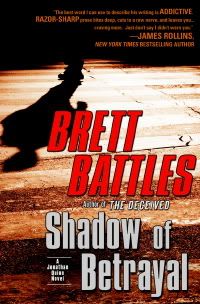 skills were needed, it would mean things had gone horribly wrong. But an assassin hidden in a tree assured just that. And suddenly Quinn had four dead bodies to dispose of and one astounding clue—to a mystery that is about to spin wildly out of control.
skills were needed, it would mean things had gone horribly wrong. But an assassin hidden in a tree assured just that. And suddenly Quinn had four dead bodies to dispose of and one astounding clue—to a mystery that is about to spin wildly out of control.
Three jobs, no questions. That was the deal Quinn had struck with his client at the Office. Unfortunately for him, Ireland was just the first. Now Quinn, along with his colleague and girlfriend—the lethal Orlando—has a new assignment touched off by the killings in Ireland. Their quarry is a U.N. aide worker named Marion Dupuis who has suddenly disappeared from her assignment in war-torn Africa. When Quinn finally catches a glimpse of her, she quickly flees, frantic and scared. And not alone.
For Quinn the assignment has now changed. Find Marion Dupuis, and the child she is protecting, and keep them from harm. If it were only that easy. Soon Quinn and Orlando find themselves in a bunker in the California hills, where Quinn will unearth a horrifying plot that is about to reach stage critical for a gathering of world leaders—and an act of terror more cunning, and more insidious, than anyone can guess.
PINTER: My latest book is THE FURY, the fourth book in my Henry Parker series, which will be released on October 1st. I conceived of this book at the first in a two-part series, that concludes with the publication of THE DARKNESS on December 1st. In THE FURY, Henry Parker is devastated to find that he has a long lost brother, but that the brother was savagely murdered. Henry is forced to not only come to terms with a thirty-year old family secret, but the truth about his brother’s short life and brutal death. And what he finds is only the beginning of something far more sinister.
BROWNE: My latest book, which was released on June 30th, is a thriller about hypnosis and reincarnation and one of the most unique serial killers you’re likely to encounter. It’s called KILL HER AGAIN, and stars a disgraced FBI agent who’s battling visions she can’t explain as she investigates the disappearance of a four year-old girl. And like all of my books, just when you think you know where it’s going, I pull the rug out from under you. So watch out.
ISAACSON: SILENT COUNSEL asks you to suppose something unimaginable: What if your child were killed in a hit-and-run? And the one person who knew the driver’s identity—his lawyer—couldn’t tell you his name because the court held it was privileged information?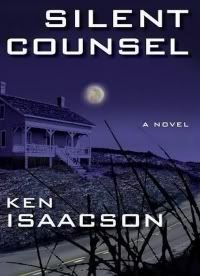
The book examines how two concepts that we like to think are one and the same—law and justice—often diverge. With disturbing results. As a mother, how would you deal with your unspeakable rage at a legal system that places a legal technicality above the search for your son’s killer? And as a lawyer, how would you deal with your ethical obligation to remain silent, when you know in your heart that the right thing to do is to help the mother find justice?
It was a real kick to see that shortly after SILENT COUNSEL’s release, it spent an entire month on Amazon’s list of Bestselling Legal Thrillers with only two titles ahead of it—John Grisham’s THE APPEAL and Harper Lee’s TO KILL A MOCKINGBIRD.
MABERRY: Tell us about your next book.
ELLISON: THE COLD ROOM releases February 23, 2010. I haven’t quite figured out how to pitch this one, so I’ll use my publisher’s tag line – He can only truly love her once her heart stops. Yes, I’ve stumbled into the ultimate forbidden territory with this book – necrophilia. My villain is a classical music-loving artist with a secret housed deep in his basement. It was by far the most difficult book I’ve ever written – structurally, because it’s heavy on the police procedure, and emotionally – because the villain scared the crap out of me and invaded my dreams. My research was fascinating and disturbing, and it took me a few months to recover from the whole writing process.
BATTLES: I’m just finishing up the next Quinn adventure, due out next summer. Right now we’re calling it THE SILENCED, but that’s not official yet. This one will be Quinn’s most personal yet, pushing him in ways he never expected to be pushed. We’ll finally get a look at what Quinn’s life was before he became a cleaner, and how that affects his life now. And as always there’s going to be plenty of action.
PINTER: My next book is THE DARKNESS, which will be out in December. Here Henry finds that his brother’s murder is the tip of a much bigger iceberg. And when this book ends, Henry’s world will have changed forever. These two books were inspired by James Ellroy’s brilliant L.A. CONFIDENTIAL. I wanted to write a story that, like Ellroy’s, would seem on the surface like an isolated incident (i.e. the Nite Owl massacre), but in fact was the cover for a much bigger story.
BROWNE: The next one will be in stores in July of 2010. It’s called DOWN AMONG THE DEAD MEN and is the story of a Hispanic-American reporter who’s investigating the slaughter of a house full of nuns down in Juarez, Mexico, near the Texas border. He soon finds himself caught up in a world of drug smuggling and death cults and realizes this may be the last story he ever gets a chance to tell…
ISAACSON: What if it were legal to gamble on the time someone else is going to die? It is, if you invest in a life insurance product called a viatical. In a viatical settlement—designed to provide the terminally ill with much needed cash—an investor purchases someone else’s existing life insurance policy, paying that person a lump sum and taking over the premium payments. When that other person dies, the investor receives the death benefit. But the transaction’s a gamble, because if the investor misjudges how long that person will live, he could end up paying those premiums for a lot longer than anticipated.
In DEATH BENEFIT, when the sister of a Newark, New Jersey law firm client dies in her sleep of carbon monoxide poisoning, third year law student Elliot Lerner is asked to determine whether anyone could be held responsible in a wrongful death lawsuit. As he looks into the circumstances surrounding the death, he learns about viatical settlements. And he learns that if the investor’s gamble looks like it’s not going to pay off as planned because the cost of ongoing premium payments is exceeding expectations, there’s only one way to eliminate that cost. DEATH BENEFIT is the beginning of a series in which we’ll be able to follow Elliot’s career as he graduates from law school, becomes a young lawyer, and hopefully flourishes in the legal profession.
Thanks to our panel!
JT ELLISON
Website: www.jtellison.com
Blog: The Tao of JT and Murderati (Tao is soon to be housed on my website but for the moment it’s JT’s Blog and on Fridays, find JT on www.murderati.com
Twitter – @Thrillerchick
Facebook JT Ellison http://www.facebook.com/JTEllison
JT Ellison photo by Chris Blanz
BRETT BATTLES
Website: http://www.brettbattles.com
Blog: http://bbattles.blogspot.com/
Facebook: http://www.facebook.com/brett.battles
Myspace: http://www.myspace.com/brettbattles
Photo credit for the author photo Moses Sparks
JASON PINTER
My official website: http://www.jasonpinter.com
The Man in Black blog: http://jasonpinter.blogspot.com
Facebook: http://www.facebook.com/jason.pinter
Twitter: http://www.twitter.com/jasonpinter
MySpace: http://www.myspace.com/jasonpinter
ROBERT GREGORY BROWNE
Website: http://www.robertgregorybrowne.com
Facebook: http://www.facebook.com/pages/Robert-Gregory-Browne/67597906429
Blog: Murderati
Connect with Rob on Twitter: @rgregorybrowne
KEN ISAACSON
Website: www.KenIsaacson.com
Facebook: www.Facebook.com/ken.isaacson

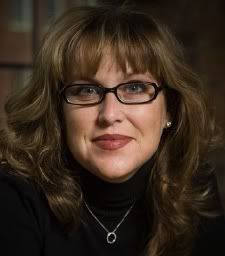
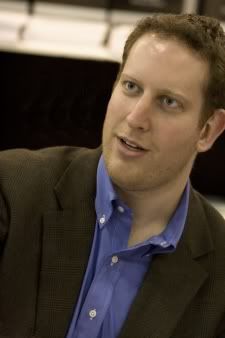
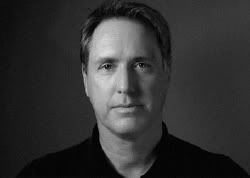
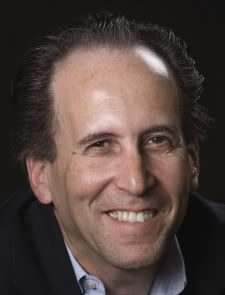
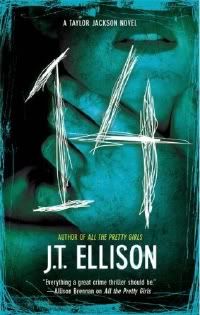
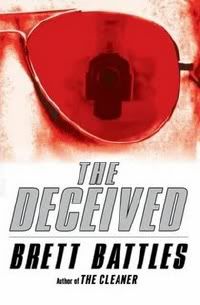
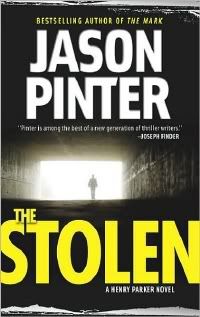
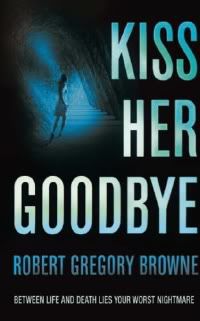
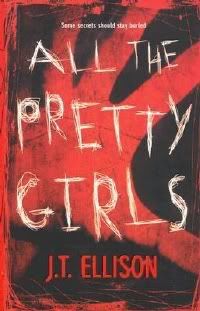
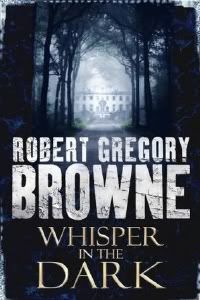
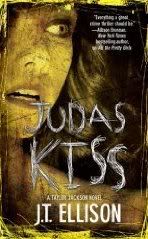
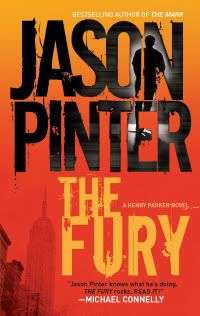
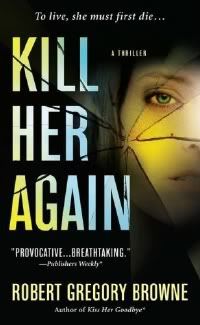
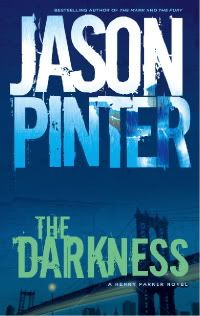
 That it takes a very specific personality type to make it as a cop, especially a homicide detective. The horror and depravity that they see every day . . . anything I write pales against the realities they live with day to day. There is endless capacity for evil in people. It’s such an honor to write their stories, and I strive to make the non-law enforcement world understand the people who keep them safe.
That it takes a very specific personality type to make it as a cop, especially a homicide detective. The horror and depravity that they see every day . . . anything I write pales against the realities they live with day to day. There is endless capacity for evil in people. It’s such an honor to write their stories, and I strive to make the non-law enforcement world understand the people who keep them safe.

